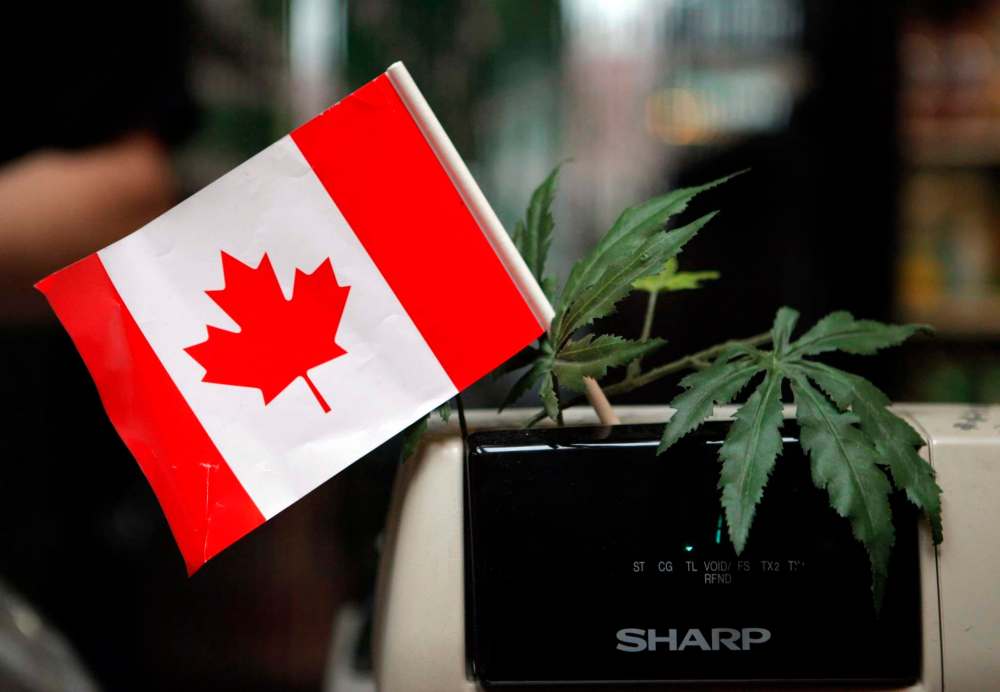Marijuana sales should be publicly owned, operated
Advertisement
Read this article for free:
or
Already have an account? Log in here »
To continue reading, please subscribe:
Monthly Digital Subscription
$0 for the first 4 weeks*
- Enjoy unlimited reading on winnipegfreepress.com
- Read the E-Edition, our digital replica newspaper
- Access News Break, our award-winning app
- Play interactive puzzles
*No charge for 4 weeks then price increases to the regular rate of $19.00 plus GST every four weeks. Offer available to new and qualified returning subscribers only. Cancel any time.
Monthly Digital Subscription
$4.75/week*
- Enjoy unlimited reading on winnipegfreepress.com
- Read the E-Edition, our digital replica newspaper
- Access News Break, our award-winning app
- Play interactive puzzles
*Billed as $19 plus GST every four weeks. Cancel any time.
To continue reading, please subscribe:
Add Free Press access to your Brandon Sun subscription for only an additional
$1 for the first 4 weeks*
*Your next subscription payment will increase by $1.00 and you will be charged $16.99 plus GST for four weeks. After four weeks, your payment will increase to $23.99 plus GST every four weeks.
Read unlimited articles for free today:
or
Already have an account? Log in here »
Hey there, time traveller!
This article was published 28/03/2017 (3179 days ago), so information in it may no longer be current.
It’s only a matter of time before marijuana sales will be legalized in our country and that means the Pallister government has some important decisions to make.
This past week, the Manitoba government tabled the Cannabis Harm Prevention Act. We are very pleased the government is talking about the legalization of marijuana and taking steps to ensure public safety is kept in the highest regard. The legislation is focused on ensuring Manitobans are not allowed to smoke marijuana in public places, indoors or in vehicles. As well, it addresses the issue of driving while high. These are fundamental matters of public safety, but if the government truly wants to ensure social responsibly, it has to recognize the need to keep the sale of this controlled substance public.
Our members who work for Manitoba Liquor and Lotteries are experts in the regulation and sale of liquor, a controlled substance, within a public system. Perhaps better than any of us, they understand that a publicly owned and operated system of marijuana sales and distribution, along with a robust regulatory environment, is the only way to keep public health at the forefront.

But they’re not alone.
Organizations such as Mothers Against Drunk Drivers (Canada) and the Centre for Addiction and Mental Health are both advocating for a publicly owned and operated system. And, it turns out, Manitobans feel the same way. According to a recent Probe Research survey, two out of every three Manitobans (65 per cent) think marijuana products should be sold through government-owned and managed stores, similar to Liquor Marts.
To encourage a public debate about public health and safety, the Manitoba Government and General Employees’ Union (MGEU) recently released a detailed policy paper, The Public Advantage — Marijuana Legalization in Manitoba. Drawing on the extensive body of research about this subject, the position paper recommended that Manitoba choose a public model that ensures safe sales, an impaired-driving strategy, improved treatment options, public education campaigns, good family-supporting jobs and quality service through stand-alone publicly operated stores.
Public stand-alone stores will allow for marijuana to be sold separately from liquor, but still in a socially responsible manner by already well-trained staff who have the expertise in dealing with a controlled substance. We have presented our recommendations to the government caucus committee on the Legalization of Marijuana/Cannabis, and in December, shared them with the ministers of justice, health and Crown corporations.
Under a system of stores owned and operated by the government, there’s no need to reinvent the wheel when it comes to establishing a model and standards for safe sales. Manitoba Liquor and Lotteries already has the existing capacity and expertise, with a proven track record of dealing with controlled substances in a socially responsible manner. Staff are already trained in how to deal with intoxicated people and ensuring products do not get into the hands of minors.
There is also a very solid economic argument in favour of the government controlling the sale of marijuana. Sales revenue will raise an estimated $25 million annually to help the government reduce the deficit without breaking its commitment to protect and improve public services.
In particular, the revenue from marijuana sales could provide real investment into underfunded addiction programs that help families and save lives. Or to fund public awareness campaigns and education programs to prevent “drugged driving,” similar to campaigns centred around drunk driving or texting and driving.
When it comes down to it, how our province decides to sell marijuana will be determined by what kind of community we want to be. Publicly controlled sales allow us to keep safety and health a priority from the point of sale, to potential challenges down the road. It’s only common sense.
Michelle Gawronsky is president of the Manitoba Government and General Employees’ Union.


